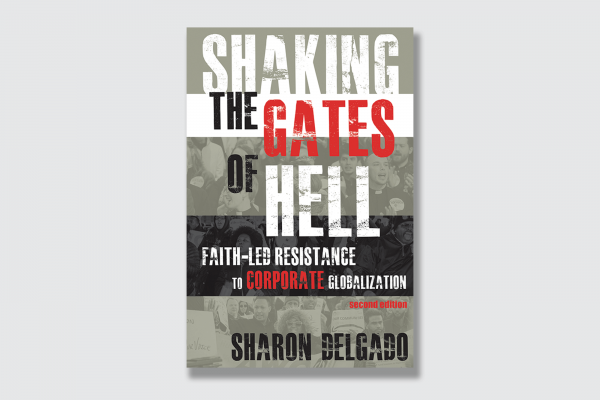JESUS HAS THE first word in Shaking the Gates of Hell: his warning against serving Mammon as master. We are on notice that this book on analyzing and resisting the assaults of global economy will do so by way of biblical spirituality. To put it more precisely, Sharon Delgado’s critique will rest on a foundational theology of the principalities and powers.
The book begins in a jail cell, where she was in lock-up following arrest in 1999 as part of the massive demonstrations known as the Battle in Seattle, which effectively shut down meetings of the World Trade Organization. Shake those gates. Rooted in action, prayers in such places can seed entire volumes. Also to say: This book is punctuated with personal stories, pastoral and political.
That Fortress Press has seen fit to publish this updated edition is testimony to its staying power as a substantive primer. There are new sections on “algobot” market investing, racial profiling, mass incarceration, and the path to permanent war. Climate predictions that seemed dire in the first edition already need to be updated, as timelines shorten and catastrophic realities set in.
Structurally, the first third of the book focuses on “the undoing of creation” (a phrase of William Stringfellow’s defining “the fall”). Much of that is devoted to the wounds of Earth, and then to human wounds by toxification, technology, impoverishment, and violence.
Read the Full Article

